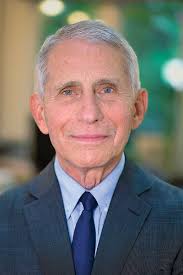
Introduction
Dr. Anthony Fauci, a prominent immunologist and physician, has been a significant figure in American public health for over five decades. His stewardship at the National Institute of Allergy and Infectious Diseases (NIAID) during numerous health crises, most notably the COVID-19 pandemic, showcases his vital role in managing public health issues. As the world continues to grapple with the repercussions of the pandemic, understanding Fauci’s contributions is essential for evaluating and influencing future health policy.
Fauci’s Career and Contributions
Dr. Fauci has been a key advisor on infectious diseases since 1984, leading critical research and implementing policies amidst the HIV/AIDS epidemic, Ebola outbreak, and most recently, COVID-19. His experience has positioned him as a trusted figure not only among the American public but also globally.
During the COVID-19 pandemic, Fauci took center stage, addressing concerns and misinformation while advocating for science-based approaches to combat the virus. He pushed for increased testing, vaccination efforts, and adherence to public health guidelines, ultimately guiding the U.S. response during one of the most challenging periods in modern health history.
Recent Events and Discussions
As of October 2023, Fauci remains a sought-after speaker and commentator, participating in numerous discussions about the future of public health post-pandemic. He has emphasized the importance of equity in healthcare and the need for robust infrastructure to manage future pandemics more effectively.
Furthermore, Fauci’s recent testimony before Congress continues to draw attention. His emphasis on learning from the COVID-19 experience indicates that he is advocating for an evolved understanding of public health preparedness and response.
Conclusion
Dr. Anthony Fauci’s career exemplifies dedication to public health and the pursuit of evidence-based medicine. His efforts have helped to shape protocols that may guide responses to future health crises. As the global community continues to recover from COVID-19, the lessons learned under Fauci’s leadership underscore the need for transparency, research, and collaboration in health policies. His work ensures that discussions surrounding public health will be informed by both his past experiences and the evolving scientific landscape. Looking ahead, it is vital for health policymakers to incorporate his insights to enhance the resilience of health systems worldwide.



